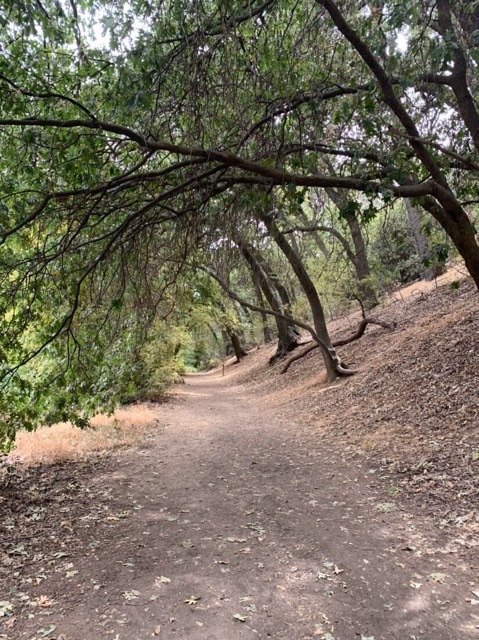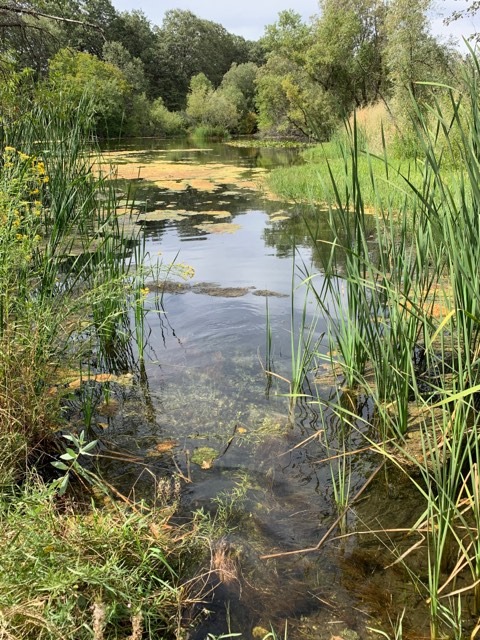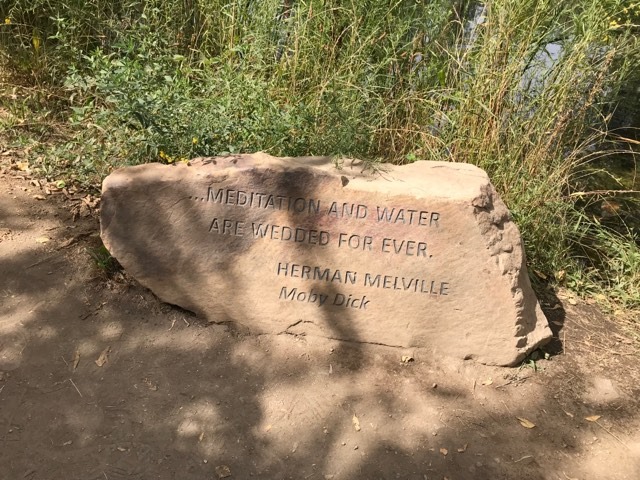Injecting Serenity – A Look at Poetics in Oak Glen

Autumn is falling fast, and that means it’s a great time to enjoy the changing seasons. Where better to go than the apple orchards in Oak Glen? A couple weeks ago, I made the trip for the first time in 15+ years with a pretty significant person in my life to go explore the red leaves (and snag some hard cider). While we were there, we walked through the Wildlands Conservancy’s Oak Glen Preserve. It is a beautiful, easy hike through some foresty areas and, for someone so entrenched in the LA climate (ok, I know Claremont isn’t that LA-ish, but it’s still nowhere near “rural”), it is a fascinating escape from smog and city life.

There were a lot of gorgeous sights on the hike. Ponds. Trees. Flowers. Fruits. Lakes. Moose. Clear skies. All of those buzz words. Yet something about this hike stood out to me from, say, the Wilderness Trail in Claremont. Sure, both have serene skylines and views, but Oak Glen has a sense of history and heritage that the Claremont hike lacks. After a couple weeks to consider why this was, I landed on poetry. Unlike many hikes I have been on, the Wildlands Conservancy had sprinkled poetics throughout the hike to imbue each view with a little extra beauty. Here’s the picture of the last one I saw, located just before the lake at the Conservancy (which is probably the most picturesque moment):

Certainly this quote is from Moby Dick and not a poem. Taken out of context, however, it pulls focus to the poetic qualities of Melville’s language. Other quotes target the same sensation—Emerson is found in the densest part of the forest; Thoreau underfoot on the dirt path. These “snippets” of poetry are akin to allusions that occur within poetry. We can feel the majesty of the lake through our understanding of Melville’s ocean and vice versa. This transforms the simple sense of awe into a more complete sense of enlightenment. Viewers can put a finger on the feeling they experience when looking out at a mountainside—which is the exact intent of the poetry. This merging of quote and experience allows viewers to feel America while in America, if I may recall Basho.
We occasionally see this usage of poetry in other locations—inscribed on statues, printed on postcards; a golden placard on a park bench. You may even see it on a subway, scribbled awkwardly between ads for a new Marvel movie. While these can allow moments similar to what I have described above, they don’t push their audience to appreciate them. Nobody is stopping their morning commute to work, in the middle of a train station, to check out what Emerson has to say about the Redwoods. Someone will when they step between two massive trees and see his quote engraved in stone about what makes them so wondrous. That makes a load of difference—we need to start meeting people with poetry where they will live the poetry and not just brush it off like dust on a jacket, so that they can actually experience what us avid readers love so much about it.
–Cassady O’Reilly-Hahn
A Moment of Zen:
Echo (for Emily)
He paws at your pen.
Those bitter maous down the hall
are purrs in your hand.

Share